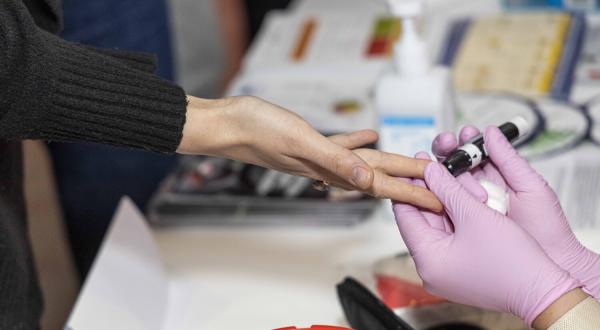Record Number of Applicants to RSU Mentorship Programme
A record number of 175 local and international students applied to the Rīga Stradiņš University (RSU) International Department's mentorship programme this spring. This is more than twice as many as previous years when around 70 senior students applied to become mentors.
A mentor is like an advisor who guides newly-enrolled international students through life at the university explaining the formalities of the study process and academic requirements, as well as giving practical advice on everyday matters and life in Riga. A mentor encourages the freshmen and helps them settle into their new homes.
The new students can approach their mentors with questions about how to act in certain situations, or how public institutions in Latvia work. Mentors play a significant role in the life of newly-admitted students and are often the first person students turn to. They have also been crucial in guiding students through the current crisis, helping them understand where to look for information regarding COVID-19, and clarifying anything that is unclear.
To be a mentor you have to be responsible. Nityanand Jain, a third-year medical student, explains that 'a mentor must be ready to get weird questions from their mentee. Whatever the questions are, however, they can be answered. Overall, it is really amazing to meet new people. It is good to enjoy these wonderful moments and we should treasure them. This experience enriches our daily life.' Nityanand Jain recalls one of his mentees boiling kefīrs (kefir), as he mistook it for milk.
He adds that 'the mentorship programme is a great alternative way to get to know the university. Senior students benefit by gaining great experience helping freshmen with their anxieties about being in a foreign country away from their family and their usual environment. The desire to help others is common among medical practitioners. People say that half of a patient’s pain and misery goes away as soon as the doctor says: “everything will be fine and I’ll be there for you”.'
'The mentorship programme is a win-win situation for both parties. Participating in the programme makes us feel more confident about ourselves and our cross-cultural communication skills and offers the opportunity to develop and improve these skills,' says Egita Vanaga, a first-year student from the Faculty of European Studies.
The mentorship programme for international students is coordinated by the International Department that conducts training for new mentors each semester. Mentor training covers such topics as mission and duties, the role of the mentor in the life of their mentees and the challenges of cross-cultural communication. The training also includes a simulation of complex real-life situations.
Related news
 RSU Health Day attracts many first-time donors and large number of student research groupsFor RSU Employees, For Students
RSU Health Day attracts many first-time donors and large number of student research groupsFor RSU Employees, For Students


